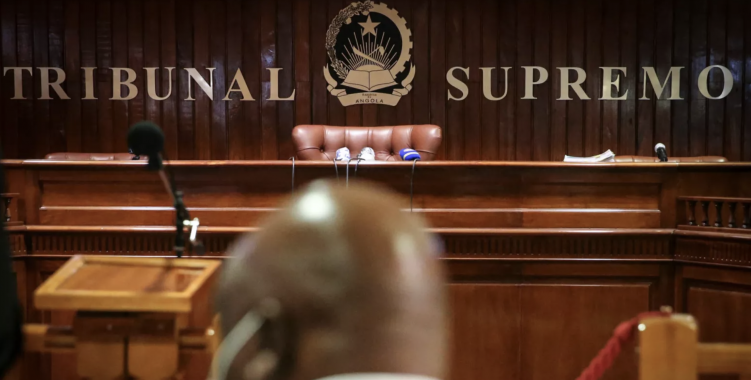"The first measure is quantitative, but necessary, given the delays and the imperative of technical and generational renewal of the Supreme Court [TS]", considers Cedesa, pointing out that, at the moment, that legal entity has a staff of 21 judges, who are to be extended to 31, which in his opinion is an "insufficient" increase.
Spain, with a population more similar to that of Angola, "has 71 judges in its Supreme Court", exemplifies the group of academics from Cedesa, who put at 50 the "adequate number of judges, which will allow for a strong renewal, so imperative, of this court".
A rationalization of the TS chambers that better meets the actual needs of society is the second measure proposed by the academics.
At the moment, the law provides for five chambers of the TS: the Criminal Chamber, the Civil Chamber, the Administrative, Tax and Customs Litigation Chamber, the Labor Chamber and the Family and Juvenile Justice Chamber.
"However, only the Criminal, Civil and Administrative and Labor chambers seem to be in operation", says that entity in the document, suggesting "a rationalization of the chambers in accordance with the effective needs of society".
According to the group of academics, there should be a Criminal Chamber, a Civil Chamber, which would encompass Family and Minors matters, a Social Chamber (work, social security and the like), an Administrative and Fiscal Chamber, and a new chamber dedicated to Economic Affairs.
This Economic Affairs Chamber would have two sections, one for Commercial Litigation to deal with large relevant contracts and another for Economic and Financial Crimes, specializing only in the judgment of crimes such as corruption, money laundering, embezzlement and others of the same type.
The third measure proposed in the report is a transparent model for appointing the TS president, with a hearing in the National Assembly.
"The two most recent presidents of the Supreme Court [Rui Ferreira and Joel Leonardo], for different reasons, have been the target of much contestation. In fact, Rui Ferreira resigned due to this contestation, while Joel Leonardo has difficulty managing his peers", recalls Cedesa in the analysis.
Currently, the President of the Supreme Court is appointed by the President of the Republic, from among three candidates selected by two-thirds of the current Councilor Judges, for a non-renewable seven-year term.
However, "an additional mechanism should be introduced in the appointment, similar to the one adopted in the recent constitutional revision in relation to the governor of the National Bank of Angola", with the hearing by the deputies, who would issue an opinion, defends in the report.
Finally, Cedesa suggests impartiality and independence in the TS with a model similar to that of Botswana, with visiting judges.
"One of the most heard criticisms about the judiciary in Angola is about its lack of independence or little impartiality, either before the executive, or before stronger/powerful people", says that entity, citing with an "uncomplexed" example that which for many years was used in Botswana.
For the group of academics, that model "in no way diminished national pride or sovereignty", and, on the contrary, "increased the prestige of its system of government".
In Botswana until 1992, in the Superior Court ('High Court') - the second most important in the hierarchy of courts - the judges were foreign expatriates appointed, with short contracts of two to three years. In the Supreme Court ('Court of Appeal'), still a third of the judges are visiting judges.
"This means that something similar could be thought of for Angola, that is, to save some vacancies in the Supreme Court [perhaps a room] for judges or jurists of merit, hired abroad with contracts long enough to guarantee their independence, but not renewables", defended Cedesa, for whom the contractual period could be from five to seven years.
According to the group of academics, visiting judges "would have exactly the same powers and competences as other judges, except that they could not be presidents or vice-presidents of the court. would be recruited in SADC [Southern African Development Community] and CPLP [Community of Portuguese Speaking Countries] countries".
By expanding the Supreme Court in this way to include visiting judges, "a window of doctrinal renewal and a guarantee of impartiality could be opened with judges from other countries who are sufficiently close, but adequately removed".
According to Cedesa, this could be a "provisional measure for 10 or 15 years", which would allow "to create a broad body of judicial debate with various views, some tending to be independent, which would allow for a more fruitful dialogue in the creation of a fair law".
Cedesa considers that, as it does not seem possible to think, at the moment, of a constitutional revision in Angola, the reform of the TS "must be carried out within the framework of the Constitution in force", because it needs to move forward as quickly as possible.







